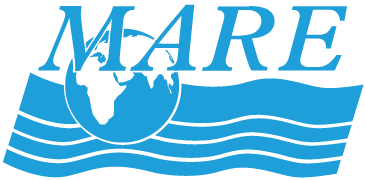Author: juliethierman
Session 10. Cause and Effect, and Ocean Acidification
This session focuses on the causes and effects of ocean acidification, the crosscutting concept of cause and effect, making and interpreting graphs, and how graphs are useful to make predictions. Through hands-on investigations, the development and interpretation of a data visualization, and some brief readings, participants explore the causes and effects of ocean acidification. They […]
Session 9. Stability and Change in Global Atmospheric Carbon
In this session, participants gain experience with the difficult task of narrowing a topic area down to a more focused question. They also learn strategies to identify the best-fit line and calculate annual rate of change, and why those are important scientific skills to have when interpreting data. In the process, they learn about the […]
Session 8. Designing Learning Experiences and the Carbon Cycle
In this session, participants continue to explore the carbon cycle through multiple experiences and discuss how the structuring and sequencing of activities about the carbon cycle can promote deeper understanding. Participants consider carbon flows between land, ocean and atmosphere reservoirs, including flows caused by human activities. They construct a model of the carbon cycle with […]
Session 7. Using Evidence and Reasoning, and Tracking Carbon
The content focus of this session also reflects the progression of ever-deepening understanding of the Crosscutting Concept of Energy and Matter in both physical and life processes through a deep dive into the carbon reservoirs and flows of the carbon cycle. Participants write their first ideas about 1) how do organisms use carbon? and 2) […]
Session 6. The Nature of Science and the Greenhouse Effect
In this session, participants gain insight into the nature and practices of science in the best way possible—by doing and reflecting on science. They take a critical look at what is and is not an accurate view of science by attempting to define it. Participants experiment with a “mystery tube” in an investigative activity designed […]
Session 5. Three-Dimensional Learning and Energy and Matter
In this session, participants examine their understanding of how the ocean and atmosphere are interconnected. They write their initial ideas, and are then presented with a puzzling weather phenomenon. As they apply their understanding of science concepts about ocean and air currents, participants explain the phenomenon. As an optional activity, participants move from observing a […]
Session 4. Introduction to Working with Climate Data
Participants first refer back to research on learning and are asked to discuss their own experiences as learners in this session. Participants consider the challenges in bringing real and near-real time data into the classroom in authentic ways, and strategies that support data use in the classroom. They also consider and discuss the tremendous value […]
Session 3. How Learning Happens and Ocean-Atmosphere Connection
This session probes into how learning happens – specifically, how learners construct an understanding of the world around them through experiences, social interactions, and making connections with their prior knowledge. Participants engage in a series of activities to gain a deeper understanding of the concept of the ocean as a heat reservoir and then apply […]
Session 2. Learning Conversations and Ocean Currents
This session focuses on learning conversations, the purpose and value in learning and ways to support students engaging in academic discussions. Participants explore ocean currents through multiple activities that include a hands-on investigation and observing a computer animation. They construct an explanation for what causes ocean currents and consider evidence-based responses to alternative explanations that […]
Session 1. Teaching and Learning Science
This introductory session of the course begins with participants sharing and discussing their ideas and prior knowledge about some of the themes around which the course was designed. These themes include: Local Ecological Knowledge & Place-based learning, Developing skills to effectively teach with data in the science classroom, Conceptual shifts in teaching and learning as […]

